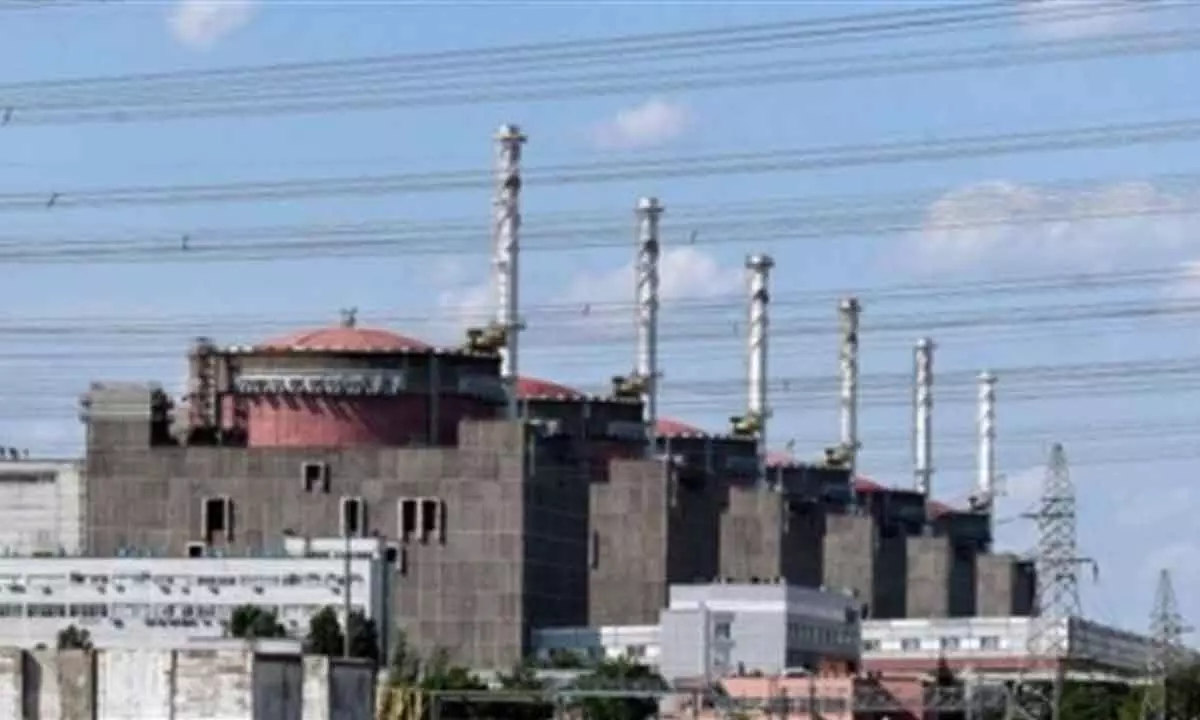IAEA team sets off to inspect Ukraine's Zaporizhzhya nuke plant

Experts from the International Atomic Energy Agency (IAEA) left Kiev on Wednesday for the Zaporizhzhya nuclear power plant in the Russian-occupied region of southern Ukraine.
Experts from the International Atomic Energy Agency (IAEA) left Kiev on Wednesday for the Zaporizhzhya nuclear power plant in the Russian-occupied region of southern Ukraine.
"We will be spending a few days there," IAEA chief and head of mission Rafael Grossi announced before leaving Kiev.
Grossi said he and 13 experts were there to stabilize the situation as much as they could, reports dpa news agency.
The IAEA chief hopes to hold talks with the power plant's Ukrainian staff during the visit.
Grossi stressed that his team had received all the necessary safe passage guarantees for the long journey to the war zone, some 450 km from Kiev.
"We are going into occupied territory and this requires the explicit guarantees, not only from the Russian side, but also from the Republic of Ukraine," he stressed before setting off in a convoy of 10 white SUVs with UN markings.
The IAEA team was received by President Volodymyr Zelensky upon their arrival in Kiev on Tuesday.
He called the arrival of the mission one of the most important security issues for Ukraine and the world today.
Zelensky called for the demilitarization of the Russian-occupied nuclear power plant, saying a zone should be created around the plant.
He also called for the transfer of the nuclear power plant back to Ukrainian state control as the only way to rule out all nuclear risks.
The Zaporizhzhya nuclear power plant is the largest in Europe.
It has a net output of 9,500 megawatts and boasted over 10,000 employees before the war began.
The plant was occupied by Russian troops shortly after the invasion of Ukraine began at the end of February.
In recent weeks, the power plant has come under frequent fire, for which Kiev and Moscow blame each other, triggering international concern about a possible nuclear catastrophe.















